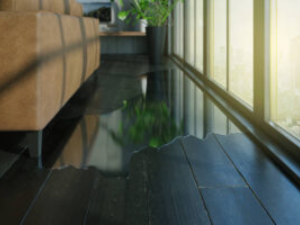How to Handle a Flooded Basement in Vancouver
Dealing with a flooded basement in Vancouver is a serious matter that should not be taken lightly. Three main causes of basement water damage include flooding from heavy rain, faulty pipes, and natural disasters. If you find yourself facing this issue, it’s essential to take quick action to minimize the damage. Whether it’s a minor leak or a full-blown flood, addressing the situation promptly can help prevent further problems like mold growth or structural damage. In this blog, we’ll guide you through how to handle a flooded basement effectively and explain why timely basement water damage repair in Vancouver is crucial. Shut Off Power and Water Supply When the basement is flooded in Vancouver, you first should turn off the power and water supply. This is crucial for safety. Water and electricity are not a good combination, and Water is especially dangerous when acquired in your basement since it might trigger electrocution. To eliminate the risk factor, switch off the electricity supply at the main electrical panel and the water supply. After doing this, you should seek the Emergency Flood Cleanup in Vancouver services to help manage the next operations safely. Assess the Extent of the Damage After the power and water are cut off, the next thing to do is to evaluate the situation. Inspect the areas of the house that may be flooded now, such as the basement, and look at which area has been affected severely. This means that the assessment should be carried out as soon as possible and as thoroughly as possible to avoid complications in the future. It is wise to identify all items that have been damaged and even take photographs in case of any insurance claims. In this case, it will be advisable to seek assistance from a professional for the basement water damage repair in Vancouver, as this will likely lead to mold development. Begin Water Removal After establishing the extent of the flooded area, it is time to start the water removal process. In case of a small flood, you may use a wet vacuum or even a sump pump to clean it. It is advisable to refer to a professional service provider for flood damage cleanup in Vancouver for large floods. It is important to act as early as possible because the structure of a house can be compromised, and there are high risks of molding. It is best to dry any area that has been wet within 24 to 48 hours because damage, such as rot and mildew, may occur beyond this time. Dry Out the Basement Drying out your basement is the next step after removing water from your home. The desired outcome is low humidity in the air and on all surfaces to avoid molding and mildew formation. Dehumidifiers can then be used alongside the fans to hasten the evaporation of water in the affected area. The condition is that it is possible to open the windows or doors to let fresh air in as much as the weather allows. It is always possible to rent specialized equipment to dry the walls and floor from excess moisture if required. If you are unsure how to get it done, it is advisable to call in a professional for water damage restoration Vancouver and get the drying done properly. Inspect for Mold Growth Mold will start to develop within 24-48 hours after it comes into contact with water, so, the a need to check for signs of mold in the basement once it is dry. Mold does not only affect your property but is also hazardous to your health. Check for mold on walls, floors, and/or furniture. If you find mold, you must act immediately when you detect it. So, there are some basement flooding solutions in Vancouver, which might require the help of specialists and special gear, such as mold removal. Mold should not be taken lightly, as the problem can escalate and lead to health complications. Conclusion A wet basement in Vancouver is a serious issue, but it can be managed when the right steps are taken. Start by switching off the power and water supply, removing any standing water and identifying the source of the leak, repairing the broken water line, and cleaning any affected areas. Each of these steps plays a vital role in restoring your basement and preventing future issues. In cases of severe flooding, it’s essential to seek professional help for basement water damage repair or flood damage restoration in Vancouver. Ensuring your basement is fully restored to its original state and protected from future water damage is key to maintaining a safe and dry home. How can I remove water from my flooded basement? For significant flooding, it’s advisable to hire professionals equipped with industrial-grade pumps and extraction tools to ensure thorough water removal and drying. What should I do with belongings affected by the flood? Assess items for damage; some may be salvageable after thorough cleaning and drying, while others, especially porous materials, may need to be discarded to prevent mold and contamination.


